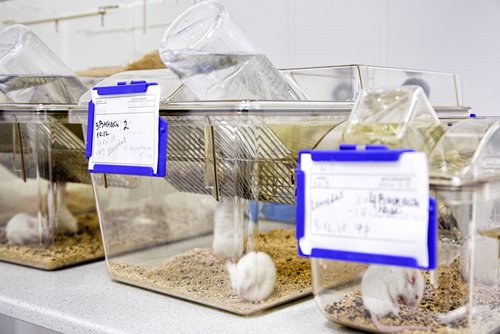Study Shows That Reducing Inflammasome Proteins Reduces PH in Mice
Written by |

The inflammasome, which is a multi-protein complex that activates inflammatory processes, was shown to play a role in pulmonary hypertension according to a journal article from the Institute for Experimental Medical Research in Oslo University Hospital. Removing a key component of the inflammasome in mice predisposed to pulmonary hypertension were rescued from disease progression.
“The mechanisms involved [in pulmonary hypertension] are incompletely understood, although a role for the immune system has been suggested,” wrote Dr. Fadila Telarevic Cero, lead author of “Absence of the Inflammasome Adaptor ASC Reduces Hypoxia-Induced Pulmonary Hypertension in Mice,” which was published in American Journal of Physiology Lung Cellular and Molecular Physiology.
Parts of the inflammasome complex are the proteins NLRP3, which is a receptor; ASC, which is the adaptor protein for NLRP3; and caspase-1, which is the effector protein of the inflammasome. The authors were interested in whether ASC and NLRP3 were vital parts of the inflammasome for developing pulmonary hypertension. They tested their theory using a well-known model of pulmonary hypertension in mice induced by hypoxia.
In order to tease out the effects of ASC and NLRP3, the authors generated mice deficient in these proteins. Next, the research team evaluated phenotypical changes associated with pulmonary hypertension and right ventricular remodeling after inducing hypoxia in the mice. Caspase-1 activation was also measured in the lungs of these mice.
The researchers identified that while mice deficient in NLRP3 responded the same to hypoxia as did the normal mice, mice deficient in ASC were protected from developing pulmonary hypertension following hypoxia. The right ventricular systolic pressure in these mice was lower, and the mice underwent less right ventricular remodeling. Activated caspase-1 levels were also lower. These results demonstrated that mice lacking ASC had a significantly reduced form of pulmonary hypertension relative to normal mice exposed to hypoxic conditions.
While humans cannot be treated for pulmonary hypertension by ASC depletion, the researchers believe ASC may play a role in future treatment options. “Hypoxia-induced elevated right ventricular pressure and remodeling were attenuated in mice lacking the inflammasome adaptor protein ASC, suggesting that inflammasomes play an important role in the pathogenesis of pulmonary hypertension,” they concluded. The results also provide more evidence for the theory of inflammation in pulmonary hypertension.



